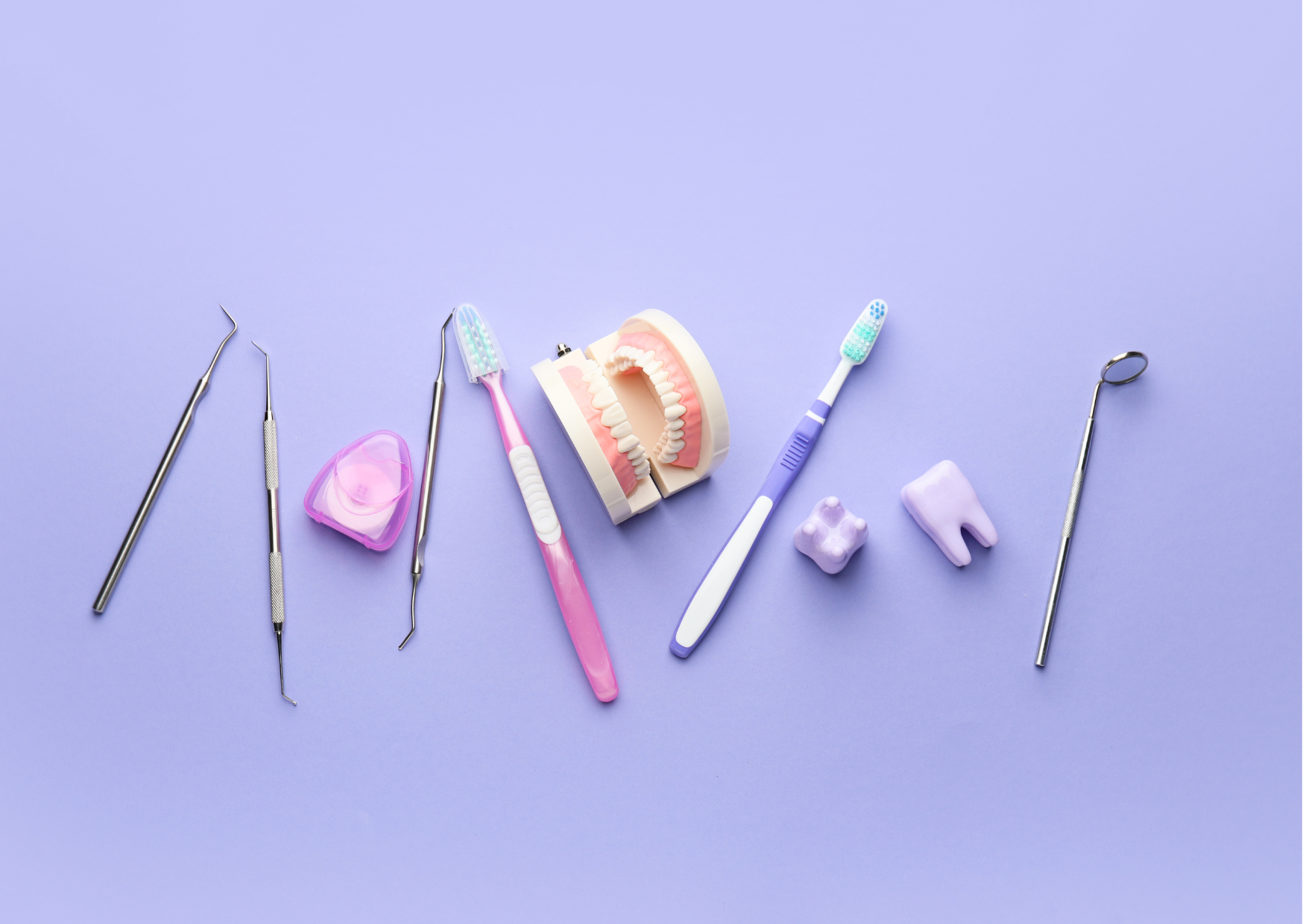Oral Microbiota: what it is and how to take care of it!

Oral Health is Basic to Your Well-being
There is a lot of talk about the gut microbiota and that is fantastic: it should be given the importance it has in our health, as it has multiple functions and is influenced by what we eat, the medicines we take, physical activity, stress, circadian rhythms, among others.
However, much less is said about the oral microbiota. It is curious that, as important as the health of the mouth is, not so much attention is paid to it. There are millions of people with periodontal disease and tooth decay. Alcohol, diabetes, smoking, obesity, certain hormonal factors, genetics and of course poor diet and stress are also risk factors for periodontal disease.
As a dentist and nutrition coach, I always look at my patients’ mouths and ask them about their condition if the consultation is remote: if their gums bleed, when they last saw a dentist, if they have bruxism, amalgam fillings, root canal treatments. Oral health and the oral microbiota have a great influence on the health of the whole body.
In addition to bacteria, there are also fungi, archaea and viruses in the mouth, and even some protozoa.
What does the oral microbiota do?
Some people think that “all bacteria in the mouth are bad”. This is wrong. A healthy oral microbiota serves many functions:
- Prevent “bad” bacteria from proliferating and causing problems such as tooth decay or periodontal disease.
- Contributes to the initiation of food digestion.
- Many people don’t know it, but there are foods that contain nitrates. Certain bacteria convert them into nitrite, which is then converted into nitric oxide. These are important substances with anti-infective and anti-inflammatory properties. Nitric oxide is also important for cardiovascular health (I talked about this in another post).
- The normal functioning of the oral mucosa and the immune system also depends on the oral microbiota.
Dysbiosis or imbalance of the oral microbiota is the pathway to caries or periodontal disease and the contribution to various systemic pathologies by the appearance of chronic low-grade inflammation and endotoxaemia. Alzheimer’s, psoriasis, heart attacks, diabetes, certain tumours, pregnancy problems, rheumatoid arthritis, are just some of the situations in which oral care is FUNDAMENTAL: the presence of certain species of pathogenic bacteria in the mouth has been linked to the pathophysiology of all of these (and other diseases).
In addition, it is already known that micro-organisms in the mouth can reach the gut, especially if there is hypochlorhydria, for example. There are people who have intestinal dysbiosis (including SIBO) of oral origin! There are many patients whose main problem for their digestive problems comes from the mouth. The problem is that often there are no local symptoms at the oral level and it takes a long time to solve the problem if the problem is not checked by the dentist.
How should we take care of our mouth?
- The diet should be prebiotic and anti-inflammatory. Do not eat between meals and do not drink sugary drinks. It is also advisable to eat hard textures, to give work to the muscles of the face. It is advisable to chew each meal at least 30 times for proper digestion.
- Mouth hygiene is important: from oil pulling with coconut oil to tooth brushing, flossing and interproximal brushes. Avoid commercial mouthwashes as much as possible. Coconut oil on the other hand is beneficial for your oral microbiota, as well as being used in Ayurveda, it has scientific evidence for its benefits on the oral microbiota.
- Regular visits to your dentist can save you a lot of unpleasantness.
- There are specific probiotics that support oral health.
- As in other situations, supplementation such as vitamin D, vitamin C, omega 3 may sometimes be necessary, all under the supervision of an up-to-date professional.
- Tobacco is one of the worst things for your health, including the health of your mouth.
- Breathing should be nasal: breathing through the mouth alters saliva production and the composition of the oral microbiota.
- Stress is very harmful for the microbiota, and also for the mouth! The predominance of sympathetic tone and lack of parasympathetic tone alters the composition of saliva in an unfavourable way.
- If you have problems with bruxism, orofacial pain, temporomandibular joint (TMJ) malfunction, seek help. There are professionals who are highly trained in all of these problems, most headaches can be related to bite or oral and TMJ problems.
If you have a partner, make sure he or she takes care of his or her mouth too! If not, your efforts may be in vain, because we share everything with our partners, including our microbiota.
